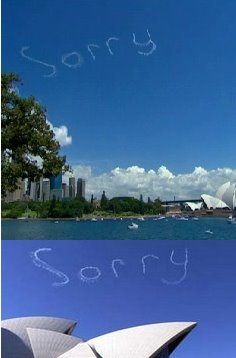Like 1.7 million Australians, I spend a lot of time on Facebook.
Originally, I signed up to stay in touch with family and friends after I moved interstate, but was quickly sucked in by the strange appeal of its mindless voyerism. Yes sirree, I became a certified addict within days of joining. I did it all, from reconnecting with old kindy friends to joining important social causes like "I wish yum cha trolleys would circulate through my workplace" and everything else that's only fun because you're supposed to be doing something else.
But beyond the self-important profiles, trashy applications and other procrastination aids, Facebook has a serious side. The site hosts hundreds of thousands of interest groups -- spaces where users can create groups dedicated to discussing any issue of their choosing and recruiting members to join in the dialogue.
With a potential Australian audience of 1.7 million and growing, and 62 million worldwide, Facebook groups can do big things in terms of mobilising public interest and support for causes. Most major advocacy and social justice organisations have jumped on the virtual bandwagon. Think people power, Gen Y style.
So, being interested in Indigenous affairs, and with the apology tipped to be delivered within the next few weeks, I decided to search to see if anyone had started any apology-related groups.
And lo and behold, they had. But the results were mixed. Although there are groups like "One Million Australians Feel Sorry" with memberships around the 17,000 mark, there are also numerous groups popping up with names like "NO I'M NOT BLOODY SORRY AND HAVE NO ONE TO BE RECONCILED WITH", "I don't have anything to feel sorry about" and "NO to sorry, YES to the real road to reconciliation".
Shortly after, I went on to read the results of an issues survey by the Herald Sun, claiming that two thirds of Victorians surveyed opposed Kevin Rudd's plan to apologise. Respondents made comments along the lines of "That's past history" and "It's not just Aborigines that had that situation, as in taken away from their parents. A lot of English were taken away from their parents in England and brought here."
Then we had yesterday's Australia Day celebrations. I think this headline from newslimited's website summed up the sentiment of the day pretty well.
PM's address puts focus on race relations
-- Skywriter scrawls 'sorry' across Bondi sky
-- Rudd shines spotlight on race relations
-- More than 3000 attend cockroach race
All of this confirmed a suspicion I'd been harbouring in the back of my mind for quite some time. It seems that many Australians oppose, or are disinterested in, the apology because of what I believe is a misunderstanding about its nature, meaning and effect.
It seems that most people who oppose an apology do so because they believe things like:
- it will force individual Australians to apologise for something they didn't do.
- the current government is not responsible for the actions of past governments, particularly when those previous governments thought that they were acting in Indigenous people's best interests.
- it means that Australians have to feel guilty about their past and cannot feel proud of it.
- it is merely symbolic and will do nothing to solve contemporary problems.
- apologising will make governments and people afraid of intervening in abuse, neglect or other welfare cases relating to Indigenous children because they will be accused of creating another stolen generation.
- Saying "sorry" will expose the government to expensive compensation claims.
Some other people hold slightly more extreme views like:
- Many Indigenous people are using the apology issue as a scapegoat for their own problems, and need to move on and take responsibility for their own life choices and situations like everyone else has to, rather than expecting special treatment.
- There were not any "stolen generations" because there is no conclusive evidence, like comprehensive lists of names of children removed on the grounds of race alone.
- Most Indigenous people removed from their families as children were removed on welfare grounds and were given better lives, with more opportunities.
But rather than making a novel out of this post, I'll offer a response to each of these arguments in separate posts.
Right after I get home from the opera :)
brb.
Subscribe to:
Post Comments (Atom)


No comments:
Post a Comment